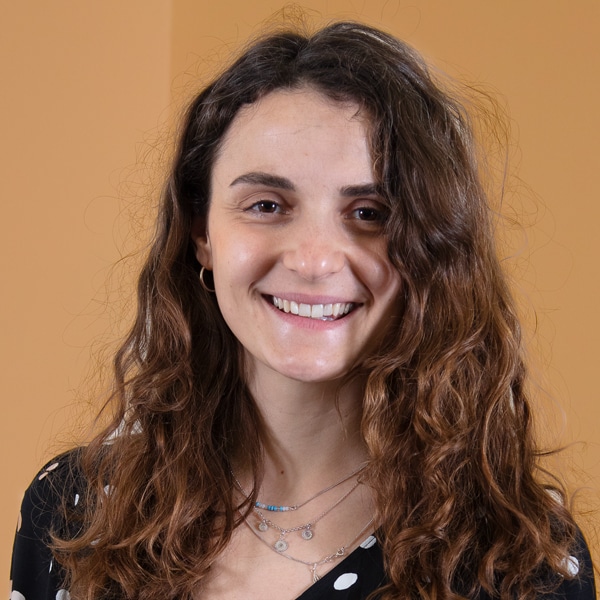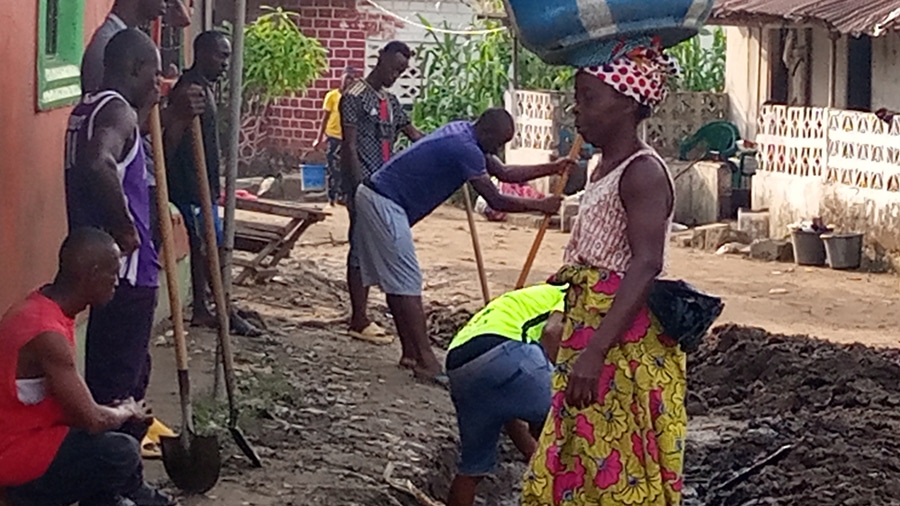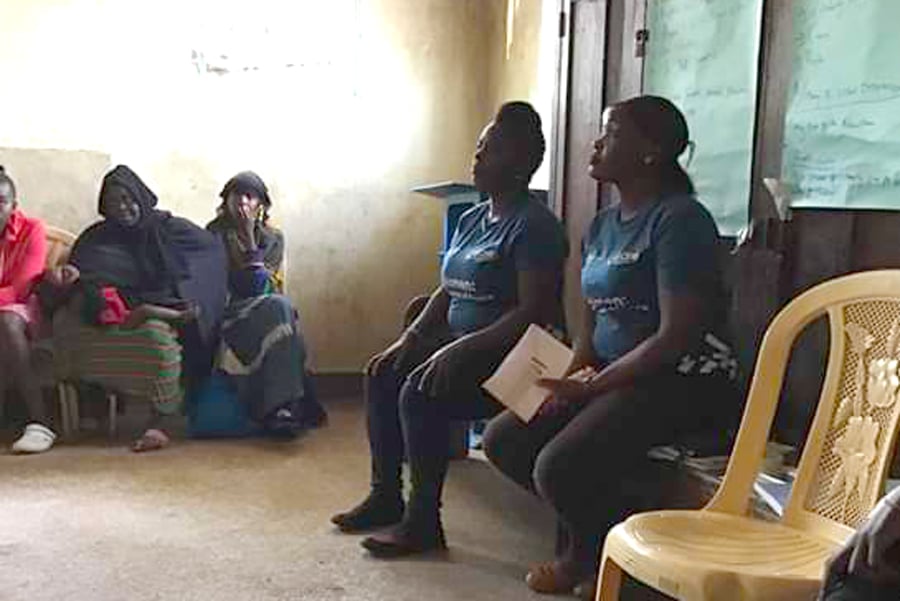How Ibali Lam is Empowering Women Entrepreneurs in South Africa
To mark this year’s International Women’s Day, the UN has chosen the theme of Technology and Innovation for Gender Equality – an area familiar to Dieudonne Allo (Global Fellow from South Africa) who is leading the Ibali Lam program through his organization Global Leading Light Initiatives. Ibali Lam is an exceptional example of empowering women through technology, by providing women entrepreneurs the digital tools and innovative approaches to storytelling to connect with existing and new customers and investors.
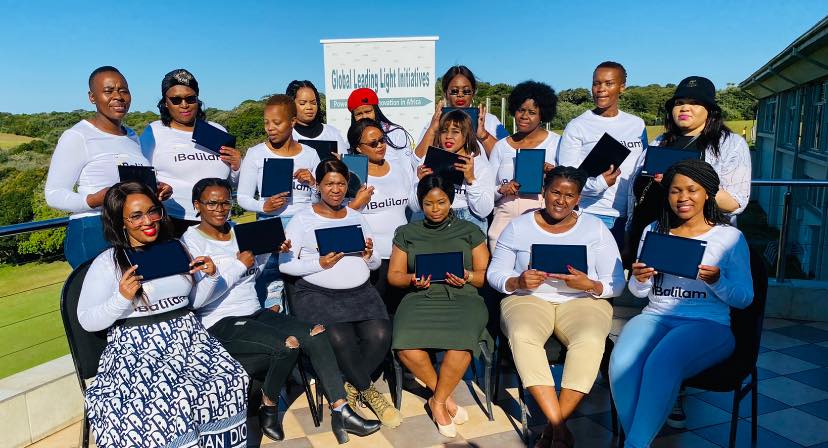
The project uses business storytelling, frugal innovation, investment readiness, and networking to help women whose businesses have been affected by COVID-19 to pivot new online models and engage existing and new audiences. The program also offers weekly roundtable sessions and one-on-one-coaching.
To mark International Women's Day, Global Fellow and CEO of Global Leading Light Initiatives Dieudonne Allo and Program Coordinator at Global Leading Light Initiatives Fatima Momoti share their insights on how their Ibali Lam program is improving women's lives, mainly through economic empowerment.
Marking International Women's Day
Fatima begins by elaborating on how women in today's world cannot interact without technology and storytelling.
“We need to empower ourselves with technology. If we are not going to move with the wave of technology, we will unfortunately get left behind and be stuck in that mentality of a previously disadvantaged group. Women need to be more in the forefront of development and innovation.”
She further elaborates on how the Ibali Lam initiative lifts women to achieve this.
"We are mainly in a rural area, so for these women to have a wider reach increases their income for their business. We come from setups that mainly have four to five people in a house, so having extra revenue means they can feed themselves and their families."
According to Fatima, when women beneficiaries understand what storytelling is they are able to better understand their customers and better craft their business online by using various social media platforms.
"Another component of the program is to ensure that we have a more holistic approach in helping these businesses accelerate and then from there help to set up the business aspect, the digital transformation."
Then, through investment readiness, women are introduced to potential investors.
"Women have been mainly talking to customers, and now it's changing from that to a potential investor. So, they get into that space when they can pitch to investors and get feedback."
This leads to more opportunities and stability for them.
Dieudonne places emphasis on women’s economic empowerment and its core role in the Ibali Lam program and importance for social justice
"Technology is advancing today, and every woman must empower herself to bridge the gap. Technology is a potent tool for women to transform themselves and empower themselves economically, because Ibali Lam is really about economic empowerment" -- Dieudonne Allo, Global Fellow from South Africa.
Gather as an Inspirational Path
Dieudonne highlights that Ibali Lam drew inspiration from the Goldin Institute’s GATHER program.
"The Gather program of Goldin Institute inspired the model of Ibali Lam. Women, especially in this part of the world, do not have access to technology, so we give them access; we provide internet data to them so they can access the online platform. Women get tablets, too.” he says.
Today, Dieudonne adds, one cannot interact without technology.
“Another thing without which you cannot interact is storytelling. For us, as Africans, storytelling is a very vital part of our culture. So, combining storytelling and technology women can connect to people and make them see value in their outputs and businesses.”
Ibali Lam’s Future Projects
Ibali Lam has to date supported 37 women and will continue to support women in other forms too. Concluding our conversation on a positive note, Dieudonne shares that they are working on a new project which will launch soon.
"Working with women, we can equip them with technological tools and their businesses can go online, but if they do not have access to finances, they cannot grow their businesses."
So, to support them, Ibali Lam has developed a new support program that will provide micro-grants for its alum. Follow Ibali Lam's work through their website.
African women are brave, and there cannot be just one day to celebrate them
By Diana Alaroker, Global Fellow from Uganda
In Northern Uganda, where I grew up, educating a young girl like myself was not a priority. My culture is patrilineal, so my worth would have been negligible in many other families. Indeed, the dropout rate for girls in my region is 78% for primary school. Girls are a currency of exchange, many of us groomed to be housewives from the age of ten. And at the age of seventeen, we are considered ready for marriage. As early as 5am, while it is still dark, very quiet and cold outside, the day has begun for an African woman. Her tasks are largely domestic, including housekeeping, child rearing, fetching water, cooking and tending to the community’s needs. Women in Uganda work two thirds of the total labour hours and produce 70 percent of the nation’s food, yet earn only 10 percent of its income and own less than one percent of its property.
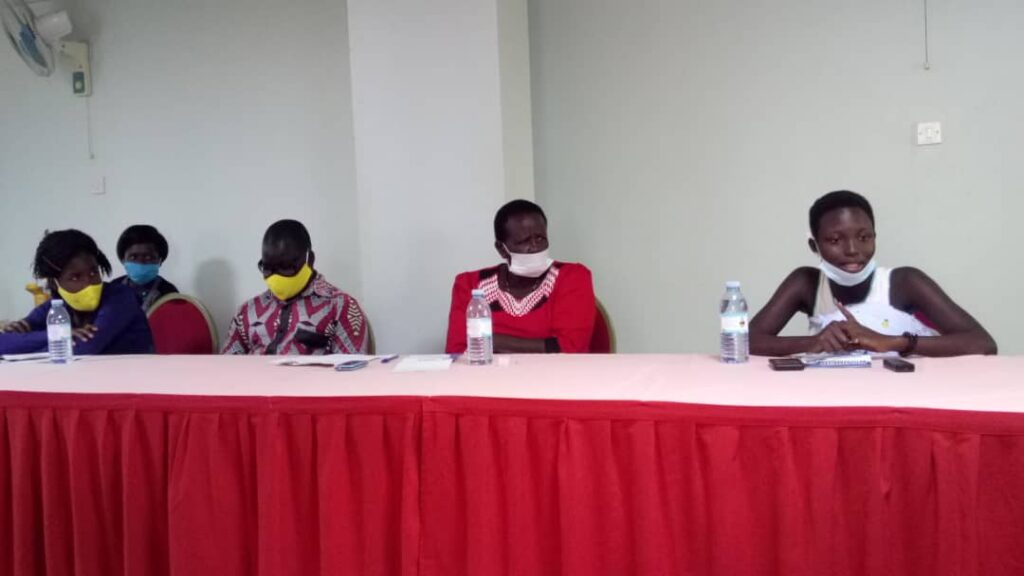
Many African women awake to responsibilities which are overwhelming and challenging at times, responsibilities they have to face as and when they come. The countless sacrifices that they make just to see their children and spouses happy can never be paid back; they are priceless.
Polygamy, which is a norm in the Acholi culture, makes the situation worse, which exacerbated after the conflict in Northern Uganda. Men often elope with other women with whom they feel they are “better off,” leaving their wives with the responsibility of raising the children and providing for the family. For the woman who has been deserted, playing the role of both parents in the lives of their children is quite challenging and hectic.
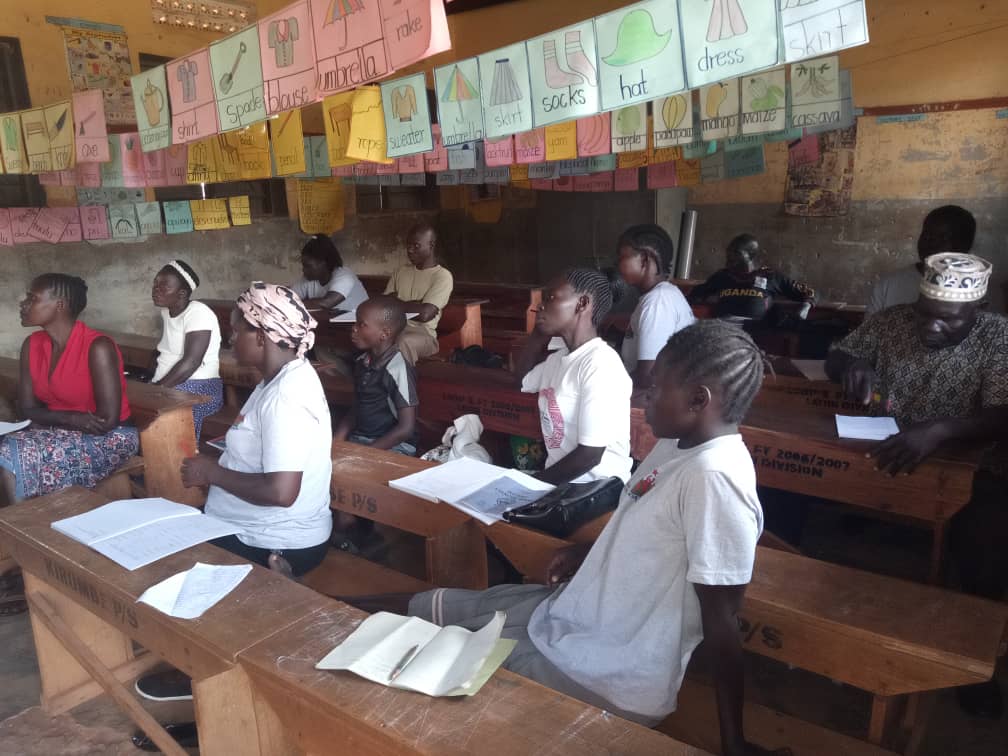
With little or no education, they are unable to get employment in any formal sector, so most of them opt for small businesses, which usually generate little profit, but give them time to attend to their responsibilities at home. And with these small profits, they are able to send their children to school to attain education which they themselves were unable to get.
African women are brave, and there cannot be just one day to celebrate them. Every day should be a day where we respect the dignity of women.
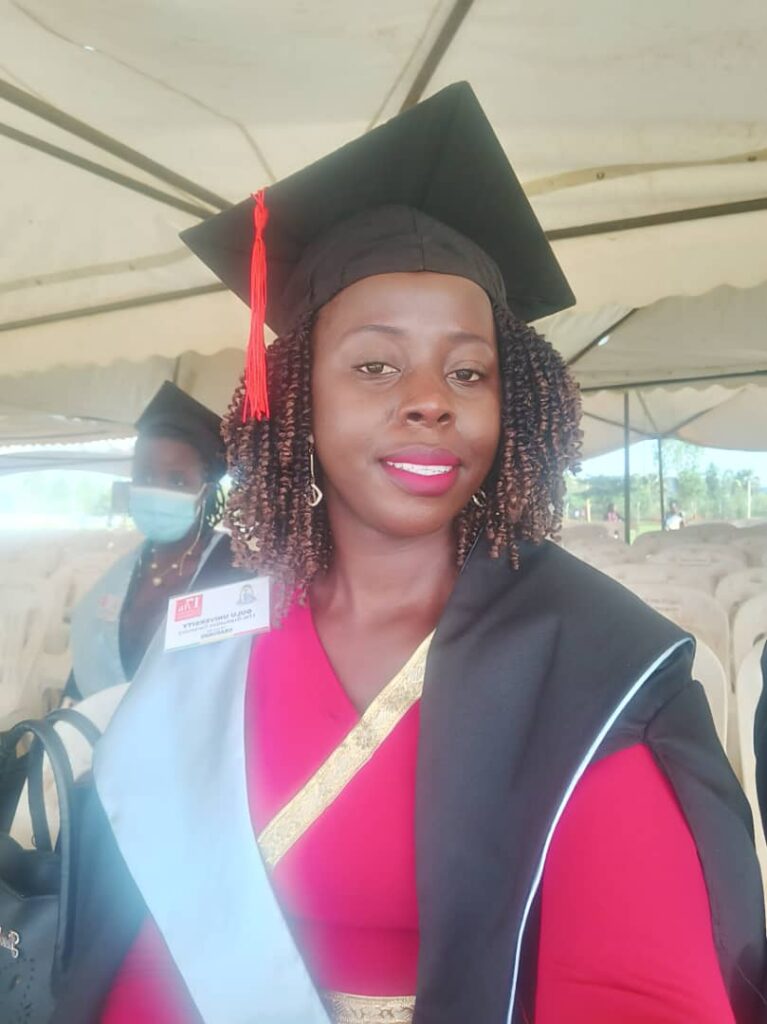
Kenya-based GATHER Fellow Empowers Women
Kenya-based GATHER alumnus Mariam Ali Famau has a special activity planned for International Women’s Day on March 8. Mariam lives and works in Majengo, an impoverished but resilient community on the outskirts of Nairobi, where she has launched many innovative projects designed to empower women who are at risk for recruitment into violent foreign extremist organizations.

In recent months, Mariam worked closely with Arigatou International, a longtime partner of the Goldin Institute, to recruit more than 110 women and girls for “Women of Faith in Action: Building Family Resilience.” Hosted by Arigatou International and the Global Community Engagement and Resilience Fund, “Women of Faith in Action” provided participants in Nairobi and Mombasa with practical training in entrepreneurship and the other aspects of business development. Women in Majengo and similar communities face dire poverty and a lack of opportunity that leave them vulnerable to enticements from foreign terrorists based in nearby Somalia. Christians as well as Muslims are at risk for radicalization because of their economic desperation.

Mariam is a single mother with limited resources, but she is deeply committed to changing the lives of the young women she works with. Her efforts are always inter-generational, reaching both children and adults, and she regularly draws large groups to her gatherings.
“We want to have an impact on our community,” she said in a recent phone interview.

To support the women who have already completed the training programs and are starting their businesses, Mariam is launching an open consultancy that will provide advanced guidance and other services. One group of former graduates are opening a car wash, and Mariam has already helped them open bank accounts, and write a business plan.
“Women washing cars – it’s unique,” she said. “It hasn’t been seen in the whole country.”

As the first enterprise of this kind to be created by women, Mariam is certain the car wash will make a big impact. But three other groups have opened accounts, and two others have written business plans. The consultancy will grow along with these businesses and as more women are inspired to try to realize their financial dreams.
“Our first priority will be transparency,” she explained.

Mariam has big plans for International Women’s Day on March 8, when she and other volunteers will visit an area orphanage. The orphanage houses both Christian and Muslim children who have lost their parents through a variety of circumstances, and Mariam plans on donating clothing and hosting a sizeable feast. As always, the need is greater than the funds she has available, but Mariam trusts that she will find what she needs.
“Instead of celebrating, we will do a visit to the nearby orphans,” she said.
Can We Talk About "Celebrating" International Women's Day?

International Women’s Day is a particularly relevant moment for us, as it coincides with our founding 15 years ago. Since that day, we have struggled to fight for the rights of women and girls who have suffered from sexual and gender-based violence through the Commission of Women Victims for Victims (KOFAVIV) in Haiti.
International Women's Day was observed on March 8, a moment during which women can gather around the world and also in the four corners of every country to discuss.

For us women of Haiti, we will have the opportunity like all women in the world to celebrate on March 8th, but it must be said that we are in a very special situation. It is quite different for us.
Because of the situation in which our girls and women live, we wonder if we too can talk about ‘celebrating’ International Women's Day.
It is true that we are all women with aspirations, whether we are white, black, yellow or blue. In all societies and all countries, women are victimized but for us Haitian women, our situation is worse. We cannot talk about celebration.
For the women who are rich, they can sit down and take a moment to reflect on the significance of the International Women's Day, but for the women who are vulnerable, can they talk about the celebration? At this very moment, these women are experiencing really difficult situations. I think it's time for them to sit down and talk to see how to get out of a terrible situation. It's a good time for all the women of Haiti to sit together to discuss and see how to get out of this situation that I call 'Inhuman.’
International Women's Day is also an important date for us because it coincides with the anniversary of KOFAVIV’s foundation and our mission to fight for women and bring to justice the perpetrators.
March 8th, 2019, was another opportunity for us to make recommendations to the international and national community to work with us in order to help to help Haitian women get out this difficult situation. That does not mean only women from Haiti are victimized but for us, it's worse when compared with others. When we talk about gender equality, we also talk about sexual violence against women. Women have to participate in these discussions because it is up to them to make their situation known. They are the only people who really know their pain and suffering. No one else can defend us better than the women themselves.
It is true that International Women’s Day’s chosen theme of balance for change is really appropriate, really beautiful. The theme talks about women's innovation without partiality, but let's say it out loud with all our hearts because I dream one day of a March 8 for all women, when the women from Haiti can gather to really have a celebration of the International Women's Day.
She Will Rise!

Young girls from Northern Uganda were ambitious and had dreams like children born in different parts of the world. They had dreams of becoming great leaders, doctors, pilots and engineers but all these were shattered when they were taken into captivity. They were forced to drop out of school and were made to leave everything behind. This was the beginning of a nightmare, one that still resonates in their wakefulness.

Some were given guns and were told that was all they needed for survival, to be great, to achieve their dreams. They were told the making of dreams needed sacrifices; of watching their siblings killed, friends mutilated, and their homes set ablaze. Escaping was never an option. Escaping was death.
And so, many made a life in captivity. They made friends and enemies and lived in fear of the people who promised them salvation and glory for fighting in a war they would never understand the cause. No one knew exactly what the fight was for; maybe it was God’s calling for the leader who insisted he led the “Lord’s Army.” It could have been for the rulership of a nation that had to start from somewhere and it started from their homes. It could have been both, but one never really knew. They just survived day after day.

They were forced to become wives to commanders randomly assigned and picked and thrown around, divided and shared like they were nothing. They become mothers at ages they needed mothering themselves but they had to love their children and teach them that the life they lived was somehow reality, hoping one day real salvation might come their way and show them a better life.
Most of them came back as child mothers with their children from captivity only to be rejected by their own families, who often looked at them as a burden. Tracing the families of the fathers of their children was almost impossible, and they had to keep suffering even in a better environment.
They have had to toil to get shelter, feed and educate their children. Lacking academic qualifications means being in the low levels of casual labour and not being able to compete with those who had better opportunities and a less gruesome past.

Most of these women, still young, have remarried so as to survive and provide a good life for their children, but some end up in a life of domestic violence and or separation with even a much bigger burden than when they went into these marriages. One of the major reasons is their past and the burden of the children they came with. The question is: What future do these children have?
The dreams of these women are to be economically empowered, independent and having their children educated. We at Youth Leaders for Restoration and Development (YOLRED) have trained some of these young women in financial literacy, that is to say generations of business ideas, how to start and improve a business, group dynamics, and village savings and loan associations (VSLA) to enhance their business and saving skills. We also gave them financial support to help them improve their businesses. In order to enhance the physical, psychological and mental healing of these child mothers, we always organize a yearly cultural festival which is also a platform for dialogue.
And once all these are achieved, maybe a better future is still ahead. Surely, she will rise again!!
Finding My Brave

This journey I have been on for the last four years has seen real moments of me finding my voice, my inner power, shedding insecurities and finding my brave. It is a journey that has and is still changing my life.
It is March 2014, and I am at the Sexual Assault Awareness Month kickoff. Legislators, reporters, state elected officials, advocates, and constituents filled the Kentucky Capitol rotunda. The building was such a powerful yet beautiful space. Marbled steps led to the second and third floors with soapstone handrails. Pictures of past elected officials and the Commonwealth of Kentucky countryside adorned the hallways. The ceiling lined with beautiful windows with colored stained glass.
Legislators walked up to a podium with an oversized sign behind it saying "Sexual Assault Awareness Month" in bold teal letters. They spoke about bills and policies they were passionate about sponsoring. Confidence, dedication and passion filled the air of the room surrounding the tall bronze statue of Abraham Lincoln that sat powerfully in the middle. I was so furious, but intrigued by a resolution sponsored by state Senator Denise Harper-Angel and spoke about implementing a mandatory audit of the rape kits that were sitting untested and un-submitted in Kentucky. She was passionate, gracious and kind. Her fiery red, pixie-cut hair matched her attitude well. The executive director of the Kentucky Sexual Assault Coalition, Eileen Recktenwald, introduced me to the senator.
[quote]Her stature was feminine and petite, but the senator's power and importance revealed itself as she spoke. I knew at that very moment that I was in a space that was life-changing for me. The senator changed the way I viewed legislation. I now saw an opportunity to use a horrific crime that happened to me so long ago and "reframe it."[/quote]
I wanted to help Senator Angel obtain the votes she needed and sent out letters to all our legislators to help her to obtain them.

For almost 20 years, I didn’t talk about my truth. I was only four weeks into my freshman year in 1994, a time where most people did not have cell phones or computers in most homes. My dad left a message that my childhood dog was dying. He felt that Buffy was waiting for me and wondered if I could drive up the next morning. I was upset and understandably needed some air. I took a bag of cookies and a glass of milk to the front porch of my home. I lived in a tall and slender victorian home in Cherokee Park, which is still named one of the three best places to live in Louisville, KY.
The late summer warm breeze felt good on my face. I thought of the good old times with Buffy and how much I will miss him. Something told me to go in and it was as vivid as if someone where talking to me. I told myself, ‘Just a few minutes more. The air feels so nice.’ Within seconds, I felt like I was falling. My feet hit the ground below and I heard a voice in the back of my neck and it was at that moment I knew someone had me with force. A stranger committed a list of crimes with me that night. He also found me again the next semester by calling me at my new apartment that was all in my dad’s name and on the other end of town. He said he could always find me. This instilled a fear in me that he could be anywhere and everywhere all at once.
[quote]I lived two decades not telling many people or talking about it. I gave up that he would be caught and felt like it happened to my body and not my soul. By keeping what happened to me at a distance, it was easier for me to go on with life.[/quote]
My offender's sentencing to 33 years in prison made me feel safe enough to come forward and start speaking out for survivors publicly. In 2014, I signed up for the White House initiative It’s On Us and volunteered with the University of Louisville’s Prevent Educate Advocate on Campus and Community (PEACC) program. PEACC Director Sally Evans was excellent. She encouraged me to volunteer and speak at campus events. I then met Eileen Recktenwald, executive director of the Kentucky Association of Sexual Assault Programs (KASAP) and a 30-year advocate. She is 64 years old with raven black hair and the smoothest complexion I have ever seen. Eileen was nurturing and empowered me to believe in myself, learn about boundaries, and how no one else but me is in control of my truth. She gave me the tools to become the advocate I am today and has never made me feel like a victim. I am where I am now due to the support she and so many others gave me.

After gaining confidence and support through my volunteering work, I started writing to legislators. Before getting involved in this, I knew nothing about legislation or the legislative process, but I did have my truth. I have always written in journals, so during my quiet breaks, while working as a nanny, I decided to write down my truth. I had heard about how contacting your own elected officials is the place to start, so that’s what I did. I used Google to find out who my legislators were and to find their contact information. I was very nervous my first time sending a letter to my legislator, Kentucky State Senator Julie Raque Adams. I was sharing something so intimate with somebody else, so I was worried about how legislators would perceive my letter, especially knowing how many people still engage in survivor-shaming.
I received notes from legislators thanking me and saying they were sorry for what happened to me so long ago, but wanted me to know that they supported Senator Angel's bill. I remember crying in gratitude because these senators acknowledged me and the pain I had suffered. These legislators were now going to use their power to create change, and that was the moment of empowerment for me. I saw that I could help change laws and hopefully help to prevent crimes or allow people victimized by crimes to have access to a more balanced justice system. By helping to create much-needed change, I began to feel empowerment I had never felt before.
[quote]My mind was racing and my heart was pounding with excitement for future generations. These new policies and laws would not save me from the pain I experienced, but they would help people victimized by crimes and their loved ones for generations to come.[/quote]
In 2016, then-Auditor Adam Edelen asked me to speak at a press conference he was holding about Resolution 20. He was passionate about implementing the resolution, which required his office to audit the untested sexual assault kits in the state. At first, I didn’t understand the terms “backlog,” “untested” and “un-submitted,” but I learned them as I advocated for reform. I then started speaking at more events. I went to counties around Kentucky for stakeholder meetings to talk about why testing all sexual assault kits is essential to me. Through my growing network, I was introduced to more advocates, such as Ilse Knecht with JoyfulHeartfoundation.org, who helps to end the backlog around the globe, and Jayann Sepich from DNASaves.org, who helped pass legislation requiring the collection of DNA upon arrest for felony crimes in New Mexico and 32 other states. She is an incredible, courageous advocate, and I was proud to partner with her to advocate and testify in Indiana for DNA legislation passed into law and similar legislation which still needs to pass in Kentucky.
Advocacy has been a journey for me, and I have learned from everyone I have met along the way. I would not be where I am today if not for the unique relationships I have made and so many people willing to lift me up and share their podium with me in hopes I may be able to pay it forward.
I returned to college to reclaim an education that was stolen from me so long ago. This is my junior year in college and my hope is to secure a career where I may continue to help others rise above the crime that happened to them and rise above their fears by connecting them to the people who can help them in their journey. These last few years, I have learned how to build bridges to bring people together for better policies, awareness, education and laws.
Last year, I worked on a bill with Kentucky Senator Julie Raque Adams and we changed what constitutes rape and sodomy in Kentucky. I try to uplift others who were victimized by crime so they may rise.
[quote]With every stroke of a pen to a legislator, every call I make to support or oppose a bill, every time I speak out, testify for change in legislation, help a survivor, overcome my fears, go into my community and spread awareness and education, my offender loses his power over me.[/quote]
When people use their position and power to help others and help women climb, we are building stronger communities so she will rise.
I Am Unstoppable

Cynthia Austin is the founder and CEO of Shyne, an organization based in San Diego, USA, created by women, for women, and in collaboration with those who’ve gotten out of, or are seeking to leave sexual exploitation.[/hl]
When I was a little girl, my heart was pure and trusting. In those days, my bare feet in the grass, wind blowing through my hair, and sun rays kissing my cheeks were all I needed to feel comforted, happy and safe. It was a time when love lived in the fairy tales of my mind, a distant place in my imagination, still untouched by life experiences.

My imagination gave me reprieve from the verbal abuse those I loved inflicted upon me: “You’re worthless, stupid and good for nothing.” My fantasies became a way of living free from the abusers’ control over me. I built a fortress around my heart and pushed away anyone who attempted to get close to me. As my heart hardened, ongoing suffering became a daily affair. Through all my abusive relationships playing out over and over like a track set on repeat, there was a part of me that chose to patch my heartbreak and look for my lessons.
One lesson I’ve come to understand is that the roles I’ve played kept me bonded to my abusers by limiting my ability to listen, care for, and protect myself. The rebel, problem child, victim and caregiver were all roles given to me. They are not who I am, nor who I wanted to be. My journey towards healing has taught me a great deal about adaptability.
[quote]I’ve learned that loving myself, with all my battle scars, allows others to love me more fully.[/quote]
Over time, I’ve realized I’m not less than or stupid or deserving of abuse. Abuse happened to me, but doesn’t define me. All of these experiences are intricately woven into the fabric of my life. A part of my story, not the full story.
Each time I’ve looked within for the reasons I was abused it has led me towards personal growth, inner awakenings and new opportunities. My abuse has pushed me to be honest with myself, discover my passions, and helped me find grace through spiritual connection. I’m able to embrace authenticity, dance wildly, dive deeply into love and emerge each time closer to the real me.
There’s a saying “What doesn’t kill you, makes you stronger.” I think there’s a lot of truth in that. I also think it goes a step further: “What doesn’t kill you, makes you stronger and wiser.”
Wisdom is my salvation, restoration and devotion. I am a truth seeker, a mother, a daughter and a friend, an innovator, a teacher, an artist and an advocate. I am a lover, a survivor, a healer and a woman.
I am unstoppable!
This is written to all the brave survivors who continue to believe in themselves despite what others say and love themselves more fully with every mistake they make.
“We are not human beings having a spiritual experience. We are spiritual beings having a human experience.” -- Pierre Teilhard de Chardin
Reflections on International Women's Day

It is with joy, pride and expectations that I share some thoughts on the celebration of Women’s History Month, recognizing the achievements born amidst struggle, bias and inequality on many levels. The advances occurring are accelerating but it has been an arduous endeavor and a long way yet in reaching our ambitions.
The Goldin Institute is proud to support leaders across the globe who are making real progress in raising the spirit and conditions of their community. After sixteen years of developing strategies and solutions with grassroots leaders, our GATHER platform has proved a success in extending the methods by which leaders are able to learn and work together to attain their goals.
Our survival and accomplishments could certainly not have been possible without the support of global partners and associates to whom we are forever grateful. Our inspiration is fueled by the dedication and results particularly of women who are leading the fight on urgent issues such as female education, rights and empowerment. These women are and will always be foundational to our global work.
World travels have expanded and deepened a compassion and commitment in me to those steeped in poverty and discrimination with little or no resources by which to escape. Women, especially, bear the burden of laboring and suffering for the entire family. I’ve listened, watched and absorbed what it means to be a person, a woman, who bears the agony and, too often, atrocities, to survive another day for her children.
[quote]Their fortitude, spirit and strength fills me with reverence.[/quote]
I want to relate an experience in which participating in a village meeting conducted and attended by men. As we met to discuss urgent issues in the village, I was curious about the women gathered at the open windows and peering through the door. Questioning the lead man of the group, I was informed that women are not included as they are uneducated and cannot read. In further discussions about identifying and leveraging resources, I pointed out the valuable contribution women were lending to the community: planning, organizing, raising and educating children, field and livestock work, feeding many with just a handful of rice. It is undeniable: women know how to DO things.
This conversation was not warmly received, but I knew there were layers of discrimination and cultural expectations that take time to affect.

Sometime later, a second visit to continue the conversations proved amazing as to my awe struck, teary eyes were two women sitting at the table in the meeting room. They were now committee heads, leaders who gave forth their reports while more women sat within, not outside the room. That is WOMEN RISING!
With the increasing number of women entering political arenas, winning elections, we will have our place at the table and our reasoned voices in the process of creating and governing equality.
